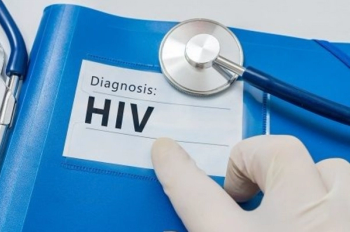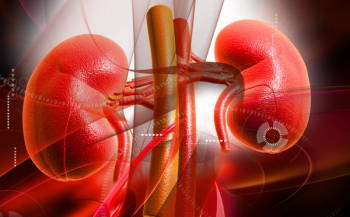
Despite an apparent benefit of intravenous immunoglobulin (IVIG) on early discharge, the likelihood of needing second-line treatment was 3 times higher in patients who initiated treatment with IVIG alone.

Despite an apparent benefit of intravenous immunoglobulin (IVIG) on early discharge, the likelihood of needing second-line treatment was 3 times higher in patients who initiated treatment with IVIG alone.

Guselkumab (Tremfya) is a fully human selective IL-23 inhibitor therapy FDA-approved for the treatment of adults with active psoriatic arthritis and with moderate to severe plaque psoriasis.

Generic small molecule drugs take advantage of abbreviated approval pathways and have markedly lower development costs compared to their reference products.

Investigational migraine drug produces significant effects on both freedom-from-pain and MBS-free endpoints at 3 hours post administration and at additional efficacy measurement timepoints of 4, 6, 12, 24 and 48 hours.

Analysis of central Missouri discovers differences in co-infection occurrence between Delta and Omicron variants.

Collaboration can manifest as referrals, joint community outreach, and networking.

Investigators also confirmed that FGFR2 fusion–positive tumors have a higher expression of FGFR2 but were not associated with higher expression of FGFR1, FGFR3, or FGFR4.

cobas MPXV targets 2 different regions of the monkeypox virus genome that are less prone to mutations than other parts of the genome.

Pharmacy school is about more than academics—it's also a time to build relationships and explore opportunities.

In a 2019 survey, middle-aged participants were considerably more apprehensive about getting vaccinated than younger groups, which was not the case in the 2022 survey.

A plethora of products complicates self-care, but pharmacists can provide guidance on nonprescription options.

Currently, no national pharmacy organization has defined wellness in the pharmacy profession, which is needed so that others have a sense of guidance around wellness within the profession.

In recent years, pharmacist roles have evolved as critically important caregivers who increasingly provide essential health care services far beyond medication dispensing.

Technology gains traction in health-system pharmacies for drug inventory and to automate applications.

Mirvetuximab soravtansine-gynx (Elahere; ImmunoGen Inc) approved FRα-positive, platinum-resistant epithelial ovarian, fallopian tube, or primary peritoneal cancer.

Anxiety disorders include generalized anxiety, social anxiety, panic disorder, and fear of certain places or situations, including crowds and public transportation.

Approximately 80% of all HIV infections among teens are from the gay and bisexual population.

Study suggests states maintaining higher health care expenditures are more attentive to price transparency initiatives and tend to adopt all-payer claims databases.

Evolocumab found to reduce reduced adverse cardiovascular events in combination with statin therapy compared to placebo plus statin therapy.

Most pharmacists and technicians are unaware of resources that aid in communication.

NVX-CoV2373 is a protein-based vaccine developed from the genetic sequence of the first strain of SARS-CoV-2.

Dapagliflozin and standard of care found to slow the decline in kidney function and lower the incidence of kidney failure.

Burnout, drug and technician shortages, home care, remote work, and telehealth continue to trend

When it comes to individualized treatment, “we can do better,” said John Edwards, vice president of Healthcare Solutions Consulting at SoftServe.

The goals of therapy for atopic dermatitis include reducing symptoms of pruritis and dermatitis with disease control and prevention of flares.

New COVID-19 variants are always cause for concern but are not a cause for panic.

PrEP reduces the risk of getting HIV from sex by about 99% for certain patient population with consistent adherence.

Zilucoplan is a subcutaneous, self-administered peptide inhibitor of complement component 5.

GDA-501, a novel, genetically modified, nicotinamide natural killer pre-clinical cell therapy.

Pharmacists can provide their knowledge to female patients but also ensure women are adequately represented in research.